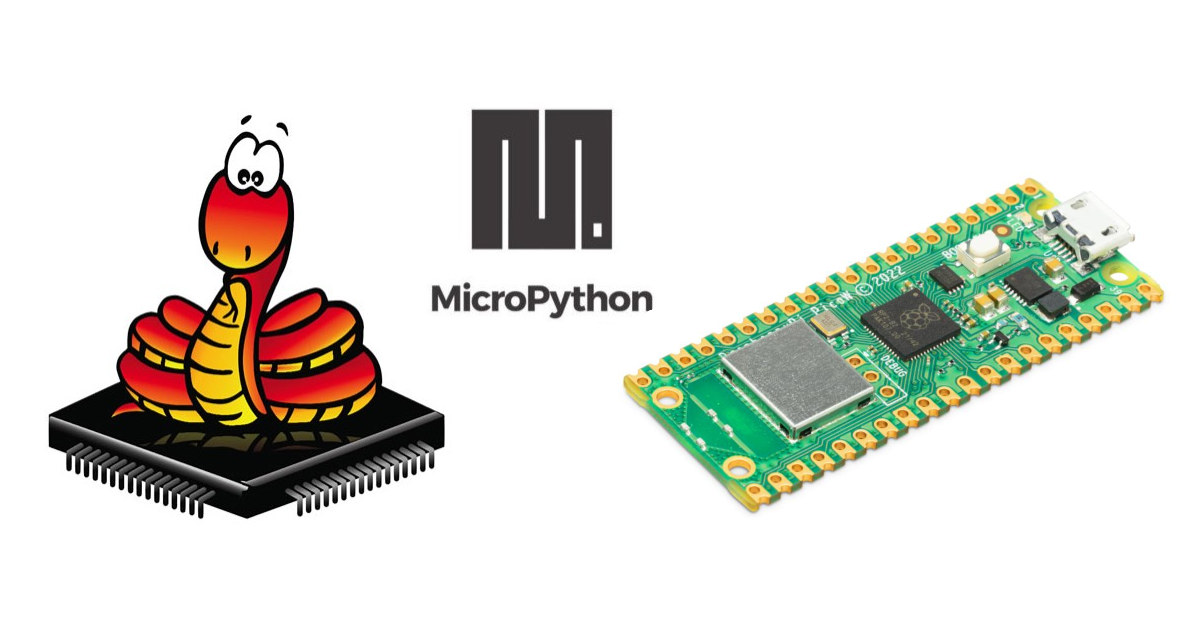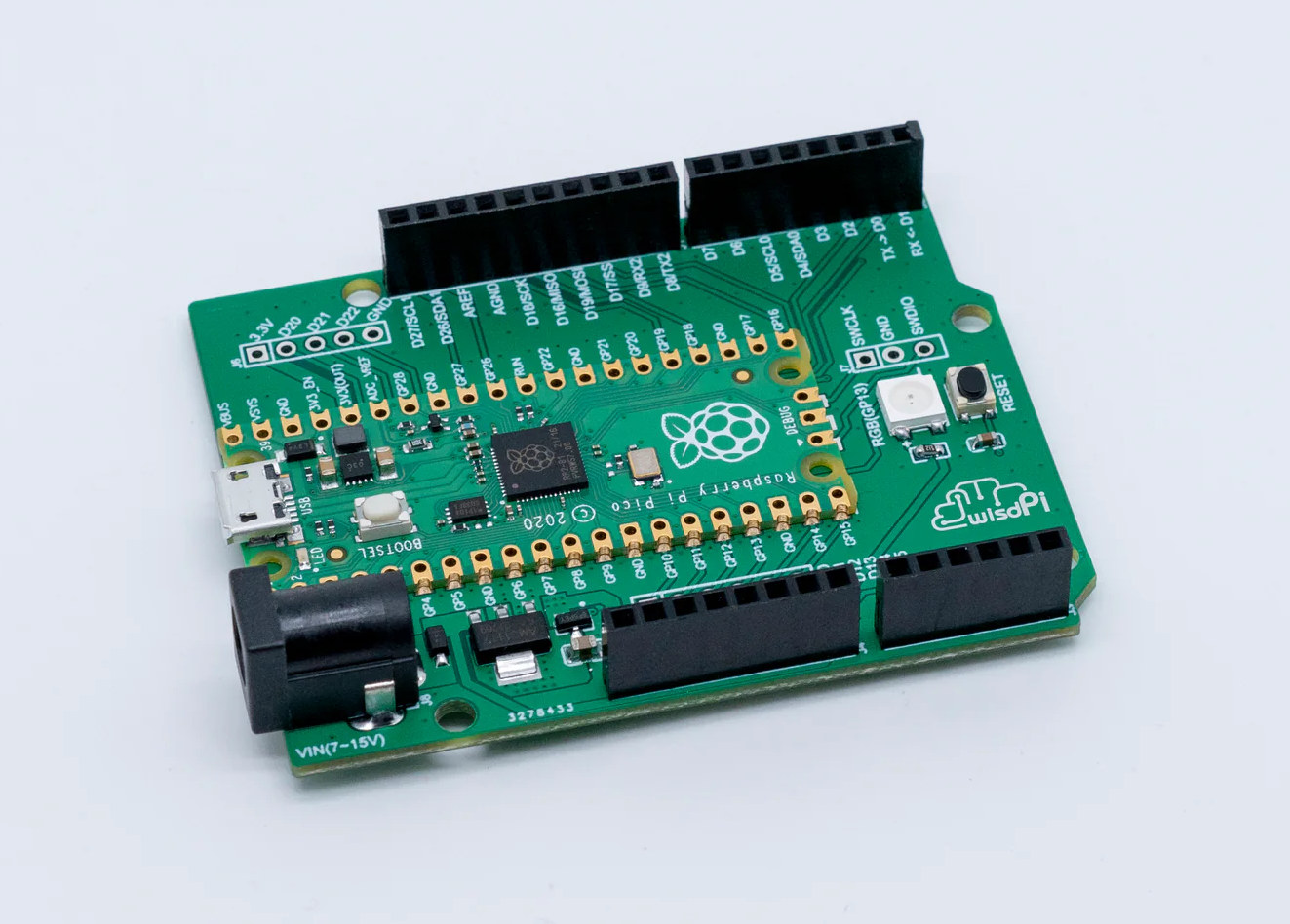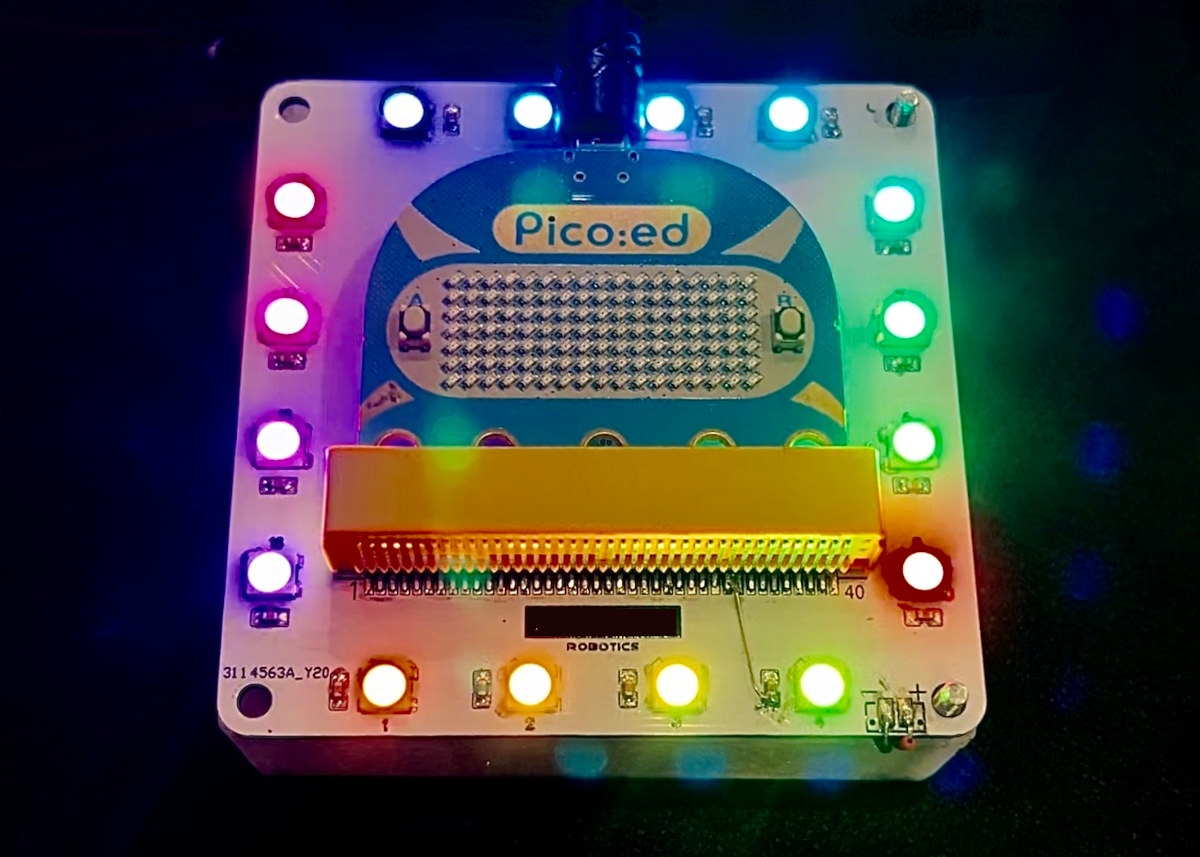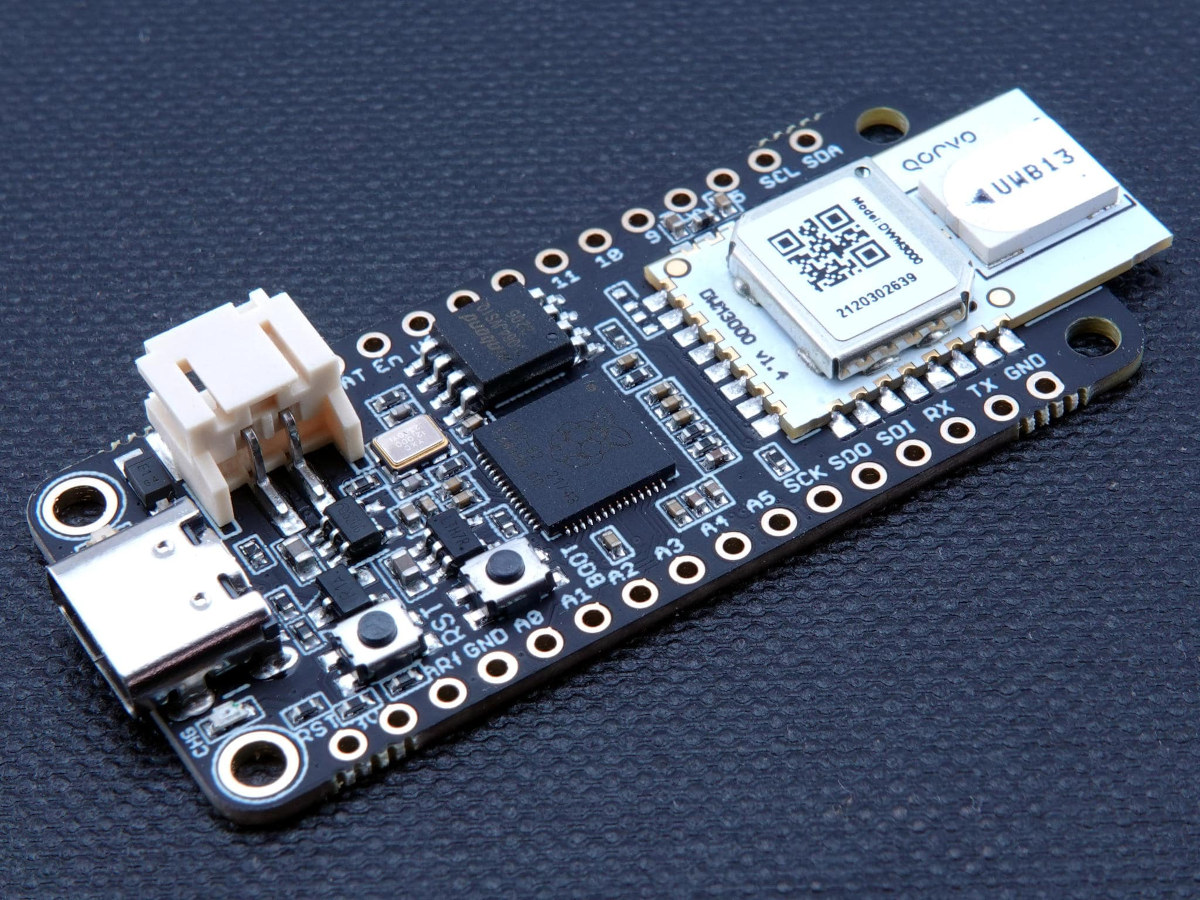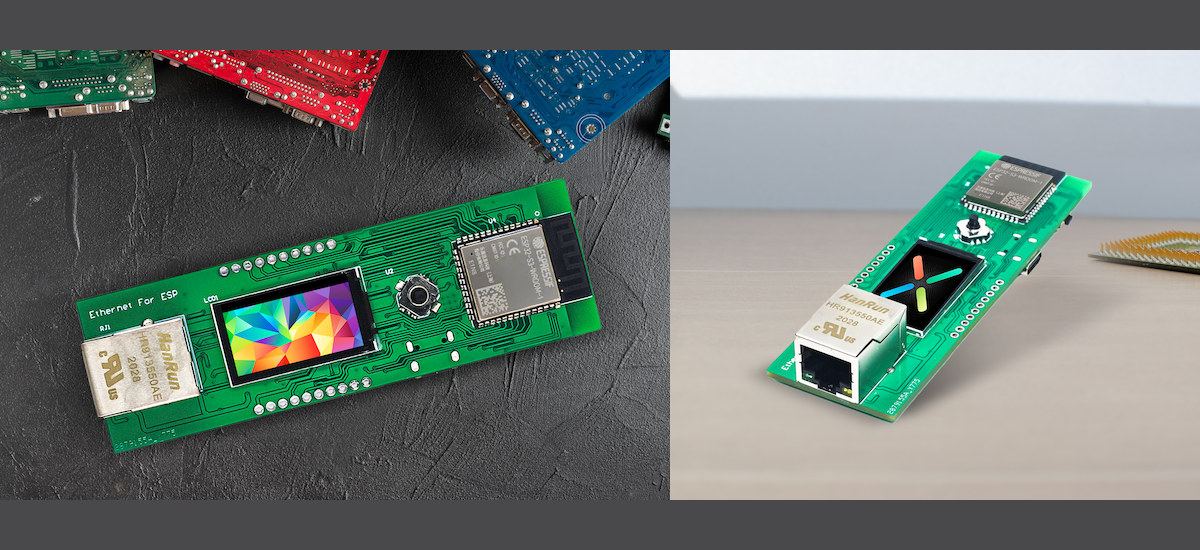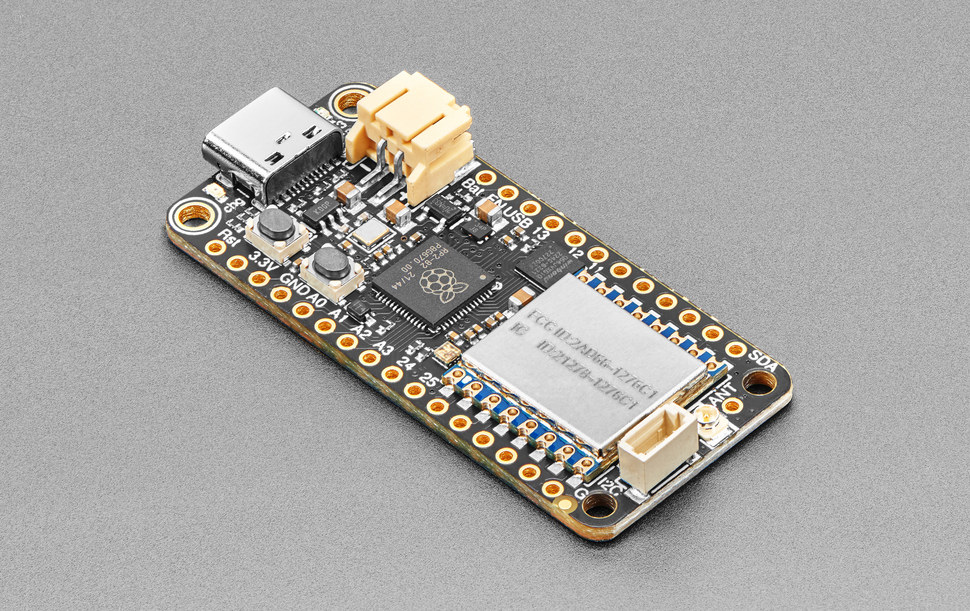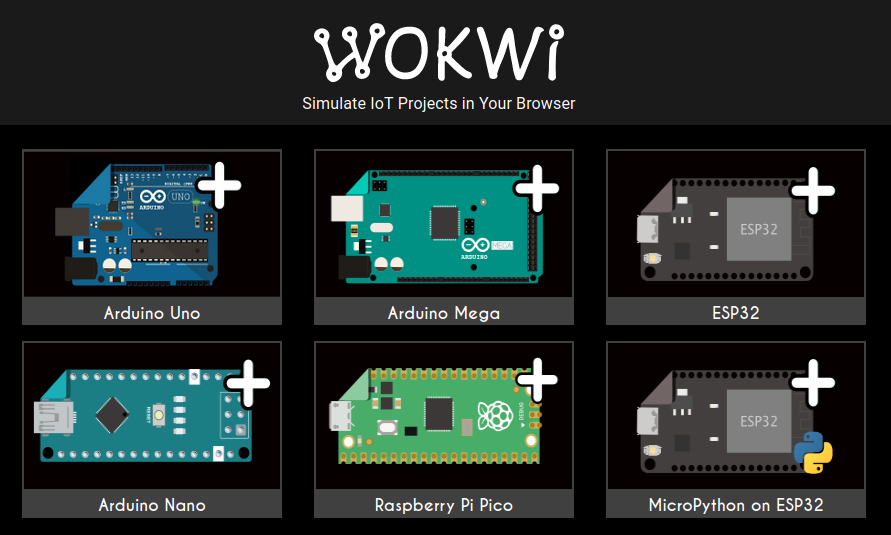Damien George has recently announced the release of MicroPython 1.20 with support for the Raspberry Pi Pico W board., a new lightweight package manager called mip, a smaller footprint thanks to the use of compressed type structs, and many other changes. mip package manager The new mip package manager uses a custom protocol optimized for embedded systems to query and install packages, and intends to replace upip for installing packages from micropython-lib or any URL. Mip can be run directly on a device, as long as it has network connectivity, or via mpremote from a host computer. Damien explains all pure-Python drivers have been moved from the micropython repository to the micropython-lib repository as part of the change in order to make it easier to install the packages needed for a given project. MicroPython is getting smaller The MicroPython binary size has been reduced by many kilobytes for all ports […]
ArduPico – An Arduino UNO compatible baseboard for Raspberry Pi Pico
WisdPi ArduPico is an Arduino UNO-shaped baseboard designed for the Raspberry Pi Pico and compatible boards that enables makers to reuse most 3.3V Arduino shields available on the market and also adds for few I/Os and features. ArduPico specifications: Compatible board – Raspberry Pi Pico, Pico H, Pico W, Pico WH, and other Pi Pico compatible board solderable using through holes or castellated holes Expansion Arduino UNO header compatible with a wide range of shields 5-pin and 6-pin headers for additional GPIOs and 3.3V, GND All Raspberry Pi Pico GPIOs are exposed 3.3V only, no 5V tolerant Debugging – SWD header Misc – Pico RESET key, WS2812 RGB LED Power Supply – 7 to 15V DC via DC jack Dimensions – 68.6 x 53.3 x 11.6 mm (Arduino UNO form factor) Weight – 18 grams Compatibility with the Arduino UNO is not 100% percent as, for instance, only three […]
Using Pico:ed V2 board as a replacement for BBC Micro:bit
We’ve received a sample of the Pico:ed V2 board developed by ELECFREAKS and will show how to use it as a replacement for the BBC micro:bit in a project using CircuitPython. We’ve already covered the board in detail with specifications, block diagram, and pinout diagram before, and it’s basically a Raspberry Pi Pico RP2040 board with BBC Micro:bit form factor including a 17×7 Dot Matrix LED display, some buttons, a buzzer, but no wireless connectivity, relying only on USB instead. CircuitPython firmware installation on the Pico:ed V2 board The board supports C/C++, MicroPython, and CircuitPython programming languages, and for this review, we’ve decided to download the CircuitPython UF2 firmware. Press and hold the BOOTSEL button after having downloaded the firmware file… … and connect the board to your computer using a USB cable before releasing the BOOSEL button on the Pico:ed V2 board, which should then show up as the […]
Embedded Open Source Summit 2023 schedule – Zephyr OS, Security, IoT, Embedded Linux, and more
The Linux Foundation has just announced the full schedule for the Embedded Open Source Summit, which will take place on June 27-30, 2023 in Prague, Czech Republic, as well as virtually starting on June 26. Over 175 sessions, birds of a feather (BoF) tracks, and workshops related to embedded and open-source innovation will be presented at the event itself comprised of six micro conferences: Automotive Linux Summit Europe, Embedded IoT Summit, Embedded Linux Conference, LF Energy Embedded Summit, Safety-Critical Software Summit, and Zephyr Project Developer Summit. Even though I’m not going to attend personally, I’ve gone through the schedule to create my own little virtual schedule with some sessions relevant that should be interesting to me and hopefully to CNX Software readers. Monday, June 26 (Virtual sessions) The first day of the event will have a Yocto Dev training in the morning, and a bunch of virtual sessions that are […]
Challenger RP2040 board gets DWM3000 UWB module for indoor positioning, up to 10 Mbps data transfers
The Challenger RP2040 UWB board features a Raspberry Pi RP2040 microcontroller combined with a DWM300 UWB (Ultra-Wide Band) module in the Adafruit Feather form factor and is designed for indoor positioning and ranging applications with an up to 10-centimeter accuracy, and data transfers up to 10 Mbps. The first Challenger RP2040 board was introduced in 2021 with an ESP8285 WiFi chip, iLabs (Invector Labs) shortly followed up with the Challenger RP2040 LoRa with an RFM95W LoRa module, and they also made models with NFC and cellular connectivity. The Swedish company has now just introduced their latest Challenger board with the Challenger RP2040 UWB leveraging UWB technology. Challenger RP2040 LoRa board preliminary specifications: MCU – Raspberry Pi RP2040 dual-core Cortex-M0+ MCU @ 133MHz with 264KB SRAM Storage – 8MB flash Wireless module – Qorvo DWM3000 UWB module connected via SPI Chip – Qorvo DW3110 ultra-wideband (UWB) transceiver IC, compliant with IEEE […]
ESPi Ethernet & info display board comes with ESP32-S3 module or Raspberry Pi Pico W board (Crowdfunding)
SB Components’ ESPi is a WiFi-enabled Ethernet board with a 1.14-inch information color display either coming with an ESP32-S3 WiFi and Bluetooth module or designed as a carrier board for the Raspberry Pi Pico W board. I have no idea who needs this, but the ESPi board looks cute and can be used as a 10/100Mbps Ethernet to WiFi (or BLE) gateway with a small TFT display, and there’s also a small joystick on the board to control a potential menu or user interface rendered in the display. ESPi board specifications: Module/Board (one or the other) ESP32-S3-WROOM-1 module with ESP32-S3 dual-core LX7 microprocessor @ up to 240 MHz with Vector extension for machine learning, up to 16MB flash, up to 8MB PSRAM, WiFi 4, and Bluetooth 5 with LE/Mesh Raspberry Pi Pico W board with Raspberry Pi RP2040 dual-core Cortex-M0+ microcontroller @ 133 Mhz with 264KB RAM, 8MB SPI flash, […]
Adafruit Feather RP2040 with RFM95 LoRa Radio launched for low power long range IoT communication
Adafruit has designed a new variant of the Feather RP2040 board with the “Adafruit Feather RP2040 with RFM95 LoRa Radio” featuring a 900 MHz RFM95 “RadioFruit” module and following the “Adafruit Feather RP2040 with DVI Output Port” that we covered last week. The board ships with 8 MB of QSPI flash, supports USB-C or LiPo battery power, is offered in the familiar Feather form factor, and the built-in RFM95 module supports 433 MHz, 868MHz, and 915MHz frequencies, selectable by firmware, for global coverage. Adafruit Feather RP2040 with RFM95 LoRa Radio specifications: MCU – Raspberry Pi RP2040 dual-core Arm Cortex M0+ microcontroller @ 133 MHz with 264 KB RAM Storage – 8MB SPI flash RFM95 LoRa wireless module Semtech SX127x LoRa transceiver Frequency bands – License-free ISM bands: ITU “Europe” @ 433MHz and ITU “Americas” @ 900MHz. (CNXSoft: it looks 900 MHz here means 868 MHz (EU) and 915 MHz (US), […]
Wokwi – An Arduino, Raspberry Pi Pico, and ESP32 board simulator
Wokwi is an online simulator for Arduino, Raspberry Pi Pico, and ESP32 boards, or even your own custom microcontroller board designed to learn programming without the actual hardware. My girlfriend’s daughter has just attended a free 5-day online course about AI, IoT, ESP32, MicroPython, and more organized by King Mongkut’s Institute of Technology Ladkrabang (KMITL) and IMAKE Innovation, a STEM education company in Thailand. I was told they had some homework for ESP32 as part of the course, so I asked her whether she wanted an ESP32 board. But she said no need. So then I asked how to program the ESP32 without the board, or do they have a simulator? And indeed I was sent the screenshot below along with a blurry video showing the LED display updated as the program runs in the web browser. Considering ESP32 boards are so cheap and external modules or a breadboard are […]


